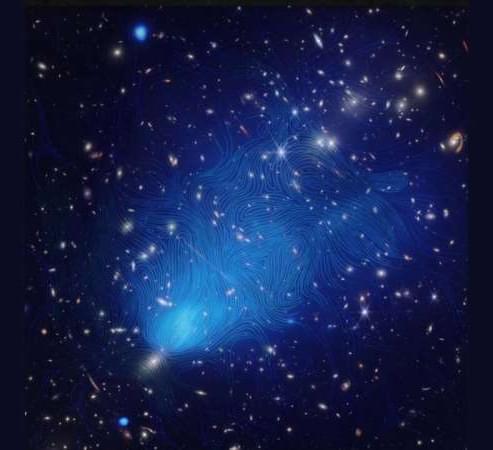In a new study, scientists have mapped magnetic fields in galaxy clusters, revealing the impact of galactic mergers on magnetic-field structures and challenging previous assumptions about the efficiency of turbulent dynamo processes in the amplification of these fields.
Galaxy clusters are large, gravitationally bound systems containing numerous galaxies, hot gas, and dark matter. They represent some of the most massive structures in the universe. These clusters can consist of hundreds to thousands of galaxies, bound together by gravity, and are embedded in vast halos of hot gas called the intracluster medium (ICM).
ICM, consisting mainly of ionized hydrogen and helium, is held together by the gravitational pull of the cluster itself. Magnetic fields in large-scale structures, like galaxy clusters, play pivotal roles in shaping astrophysical processes. They influence the ICM, impact galaxy formation and evolution, contribute to cosmic ray transport, participate in cosmic magnetization, and serve as tracers of large-scale structure evolution.
